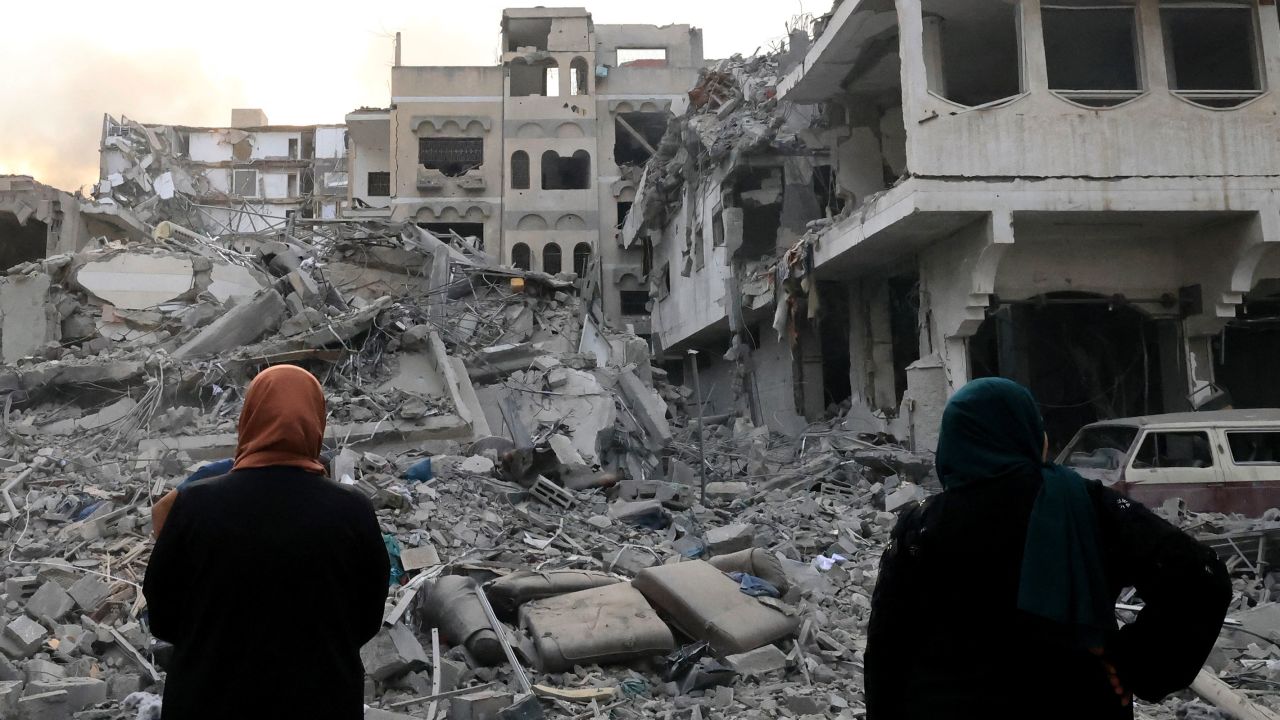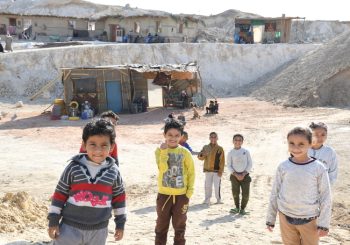At least 300 Palestinians have been killed and more than 12,500 injured as of 17 October, the eleventh day of the ongoing Israeli strikes on the Gaza Strip. 64 percent of those killed were women and children, according to the Palestinian Health Ministry.
The Palestinian Health Ministry has also reported in a recent recent update that 61 Palestinians have been killed and 1250 injured in the West Bank.
Israel also bombed areas of the southern towns of Khan Younis and Rafah, early Tuesday, 17 October, where it had initially told Palestinians to seek refuge. A senior Hamas official and former health minister reported that the bombing resulted in the killing of 27 people in Rafah and 30 in Khan Younis.
According to the United Nations, approximately one million people have been displaced inside Gaza.
International Efforts
After his upcoming solidarity visit to Israel on Wednesday, US President Joe Biden is set to travel to Amman, Jordan for talks with Palestinian leader Mahmoud Abbas, Egyptian President Abdelfattah Al-Sisi, and Jordanian King Abdullah II.
Following a meeting of the National Security Council headed by Al-Sisi, Egypt announced that it will host an international peace summit on Saturday, 21 October, to discuss the developments and future of the situation in Palestine. So far, the summit is expected to be attended by the Secretary General of the United Nations, France, the US, and 16 more countries.
The European Union will launch a humanitarian air corridor to Gaza through Egypt with the first flights expected this week, European Commission President Ursula von der Leyen said on Monday, 16 October.
Solidarity and Support
In a phone call between the President of Cyprus Nikos Christodoulides and Al-Sisi on 17 October, the two parties highlighted the risks and dangers of humanitarian implications on civilians.
Spain’s acting Minister for Social Rights Ione Belarra accused Israel of conducting a “planned genocide” in Gaza, describing the current siege as an act of “collective punishment”. Belarra also stated that Netanyahu should be tried at the International Criminal Court (ICC) for committing “war crimes”.
On his part, Colombian President Gustavo Petro accused Israel of turning Gaza into a “concentration camp” and suggested that his country may need to suspend diplomatic relations with Israel. To retaliate, Israel suspended security exports to Colombia.
Developments in Rafah
Hopes for a ceasefire that would allow the entry of much-needed humanitarian aid have been shared by Palestinians, the international community, and concerned onlookers. However, Israel has bombed the Palestinian side of the Rafah crossing four times since the beginning of the conflict, most recently on 16 October.
In anticipation that the Rafah border crossing will reopen, enabling aid to enter and some foreign nationals to exit Gaza, large crowds have gathered near the border. It remains, nonetheless, closed.
According to a UN official, shelters in southern Gaza are overwhelmed due to tens of thousands of people fleeing from Israeli airstrikes in the northern part of the coastal enclave.
In addition to shelter shortages, southern Gaza is facing critical shortages of essential supplies, including food, water, and fuel.
A UN humanitarian team is currently positioned at the Egyptian side of the Rafah crossing, awaiting approval to transport aid supplies into Gaza.
According to a statement from the United Nations Relief and Works Agency for Palestine Refugees in the Near East (UNRWA), an advance team has been dispatched to Egypt to prepare for the potential opening of a humanitarian corridor to deliver aid supplies to Gaza.
The Conflict So Far
On 7 October, Hamas launched a surprise attack from Gaza on Israel, taking Israel’s military and intelligence establishment by surprise and resulting in significant urban combat on its streets for the first time in decades. Following these events, Israeli Prime Minister Benjamin Netanyahu declared that Israel is at war, and Israeli Minister of Energy and Infrastructure Israel Katz announced that Israel will cut off power to the Gaza Strip.
There have been civilian casualties on both sides, and Palestinian militant groups claim to be holding more than 130 Israeli captives.
Since Hamas’ attack, Israel has conducted over 1,000 airstrikes in Gaza, displacing and killing thousands, and causing significant damage to homes and infrastructure.
Subscribe to the Egyptian Streets’ weekly newsletter! Catch up on the latest news, arts & culture headlines, exclusive features and more stories that matter, delivered straight to your inbox by clicking here.







Comment (1)
[…] At least 300 Palestinians have been killed and more than 12,500 injured as of 17 October, the eleventh day of the ongoing Israeli strikes on the Gaza Strip. 64 percent of those killed were women and children, according to the Palestinian Health Ministry. The Palestinian Health Ministry has also reported in a recent recent update […] The post At Least 2,837 Palestinians Killed…Read More […]